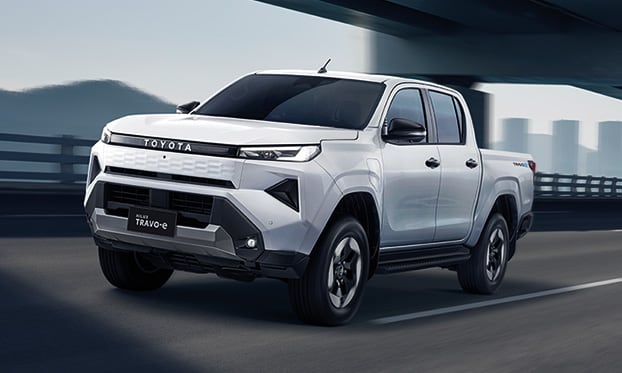Toyota Unveils Electric Hilux in Thailand as Part of Strategic Expansion
Toyota, the world’s leading automaker, has made a significant move in the electric vehicle (EV) market by unveiling its first electric pickup truck model, the Hilux, in Bangkok, Thailand, on the 10th. This marks a major milestone for the company, as it introduces a completely redesigned ninth-generation Hilux that has undergone a full transformation after a decade of production. The new electric version is set to be produced at Toyota’s factory in Thailand and will be sequentially sold across multiple Asian countries starting next year.
In addition to the electric model, Toyota also plans to release a diesel version of the Hilux targeting the Japanese domestic market, with a scheduled launch in the middle of next year. This dual approach highlights Toyota’s strategy to cater to both emerging EV markets and traditional fuel-based markets.
Strategic Move in Southeast Asia
The decision to unveil the electric Hilux in Thailand comes at a crucial time for Toyota, especially given the growing competition from Chinese automakers in Southeast Asia. Industry analysts believe this move is part of Toyota’s effort to defend its “home turf” in the region. Chinese companies have been rapidly capturing market share in Southeast Asia, particularly in the EV sector, where they dominate 88% of the market in Thailand—the largest market in the region. This dominance far surpasses that of South Korea (1%), the U.S. (6%), and Europe (5%).
Despite the decrease in U.S. import car tariffs from 25% to 15%, global automakers like Toyota still face tariff risks in the U.S., the world’s largest auto market. Moreover, concerns about a potential “peak out” in the U.S. auto market are increasing, making the defense of third markets more critical than ever.
Hyundai’s Response to Market Shifts
In a similar context, Hyundai Motor has also been increasing its investments in third markets, aiming to turn around its performance through new vehicle launches. Recently, Hyundai announced the appointment of Tarun Garg, the current Chief Operating Officer of its Indian subsidiary, as the new CEO, effective January 1 next year. This marks the first time in 29 years since the establishment of the Indian subsidiary that a local Indian has been named CEO.
Hyundai also held its first CEO Investor Day for shareholders and institutional investors in India, pledging to invest 450 billion rupees (approximately 7.4 trillion Korean won) in the country by 2030. Last year, the company had announced an investment of 320 billion rupees (approximately 5.3 trillion Korean won) by 2032, but the average annual investment has since increased by hundreds of billions of won.
This strategic shift by both Toyota and Hyundai reflects the changing dynamics of the global automotive industry, where electric vehicles and regional market expansion are becoming central to long-term success. As automakers navigate these challenges, their decisions in markets like Thailand and India could shape the future of the industry.
